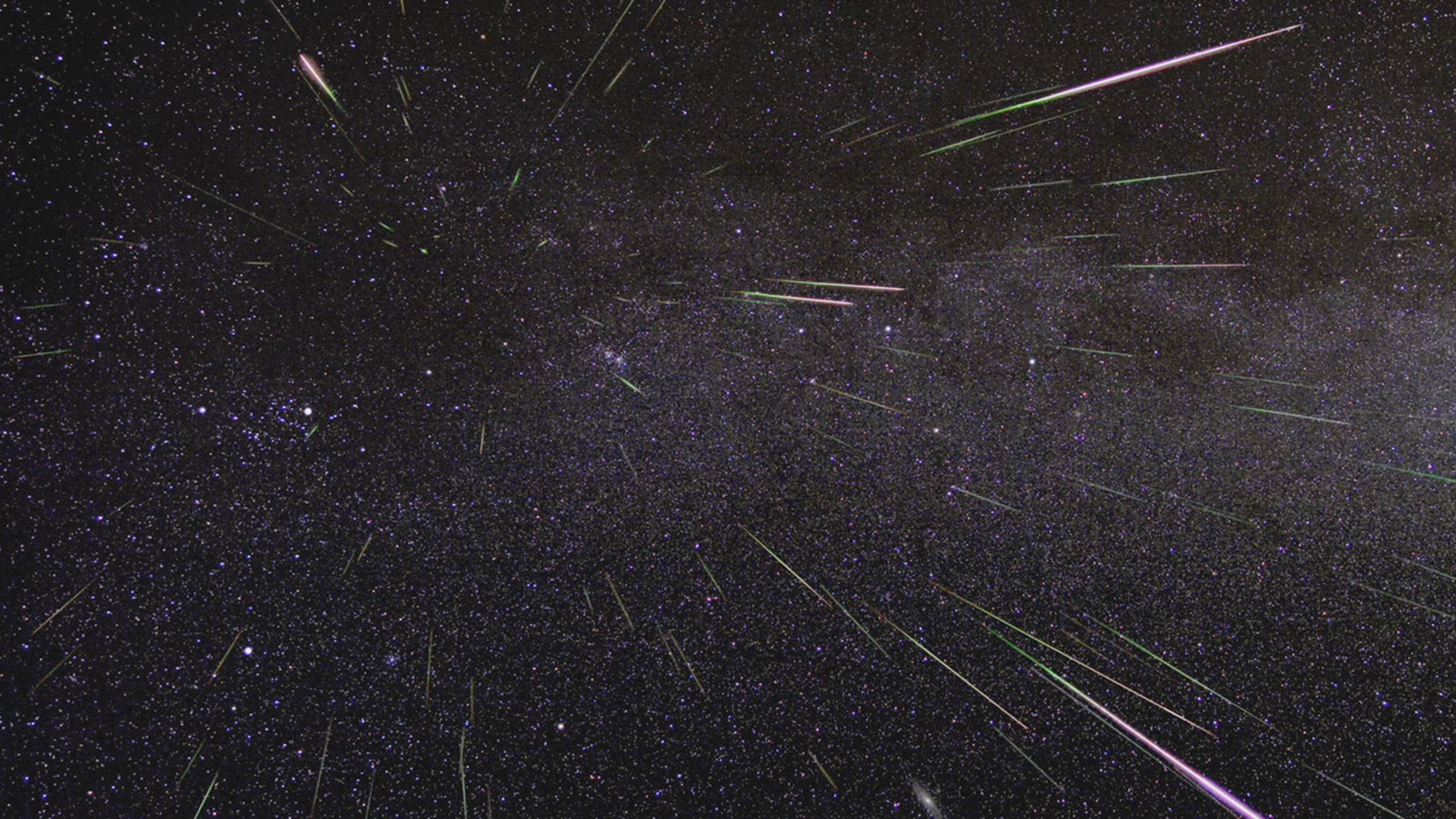SEATTLE — Star gazers, the Perseid meteor shower is expected to reach its peak this year on Aug. 12 and Aug. 13 but will remain visible through late August.
We have compiled a list of places in Washington that are dark enough to give you the best chance of spotting some meteors in the late night/early morning hours.
But first things first, what are the Perseids? And why do they come around every year?
According to NASA, meteors are leftover comet particles from bits of broken asteroids. Comets come around the sun and leave dusty trails in their wake. The Earth then passes through the debris trails that collide with and disintegrate in our atmosphere.
The Perseid meteor shower in particular is comprised of space debris from comet 109P/Swift-Tuttle. Swift-Tuttle takes over 133 years to orbit the sun. NASA notes the Perseid meteors can leave long trails of light and color behind them as they burn up in Earth's atmosphere.
For people hoping to spot the Perseids, keep in mind, it's a late-night activity. The Perseids may first become visible around 10 p.m., but the best chance of seeing the meteors may not come until 1 to 2 a.m.
Spots to stargaze:
For stargazing spots in Seattle, check out The Best Spots for Stargazing in Seattle by Space Tourism Guide. Locations include Alki Beach and Constellation Park - however, stargazers in the Emerald City have to contend with intense light pollution that may make it difficult to get the best view.
Snoqualmie Point Park - Seattle Astronomical Society Star Party on Aug. 12
The Seattle Astronomical Society (SAS) is hosting a "Star Gaze" event authorized by the city of Snoqualmie Parks and Recreation Department free of charge. Experienced astronomer volunteers from the SAS bring their telescopes and binoculars to share with the public. With the Moon in the Waning Crescent phase, the skies will be dark and favorable for stargazing.
Hurricane Ridge Night Sky Telescope Program - Olympic National Park
The Olympic Telescope Program is hosting star gazing events at Hurricane Ridge every night between Aug. 12-18 starting at 10:15 p.m. The program is free and no reservations are required. Visitors will need to pay to enter the park. For more information, visit the Olympic Telescope website.
Mount Constitution - Orcas Island
The Washington Trails Association (WTA) lists this spot as the highest point on Orcas Island, offering "unparalleled views over Puget Sound. Mount Constitution is in Moran State Park, so those planning on night hiking will have to camp and have a Discover pass. It's possible to drive to the summit for those uninterested in hiking all the way to the top. Check out more spots on the WTA's Dark Places Digest.
Sunrise Picnic Area - Mount Rainier National Park
The National Park said it isn't uncommon to see 60 meteors within an hour during the shower's peak. Once at the Sunrise parking lot, the main trailhead is on the right side of the parking lot between the restrooms and the sunrise day lodge. The park asks that people stay on paths to help protect plants and wildflowers. Pets on a leash are allowed in the picnic area but not on any trails. This is a popular spot to watch the shower, so plan to get there early.
Pearrygin Lake State Park - Winthrop
The state park near Winthrop is in one of the darkest places in Washington state. Getting to the park could prove problematic due to the Sourdough fire, which has shut down parts of the North Cascades Highway, so stay up to date on fire activity and road closures, but for hardcore stargazers, the Methow Valley is an excellent spot. According to the Methow Dark Sky Coalition, the park has "pretty good visibility" in all directions and the campground is great for families.
Goldendale Observatory State Park - Goldendale
The Goldendale Observatory will be offering extended hours on the Aug. 12 and 13. After the regular evening shows, which start at 12:30 a.m., visitors will be allowed to remain at the park until 3 a.m. to enjoy the meteors. More information can be found here. Regular shows run from 9 p.m. to midnight and reservations are required. Because parking is limited, gates will remain closed until 12:30 a.m. to prevent disruptions to the evening shows, but stargazers will be allowed entry after.
What to bring when going stargazing
Being out in nature at night requires some preparation and forethinking to make sure everything goes smoothly.
Here's what people should bring for night hiking, and hiking in general, according to the Washington Trails Association:
- A detailed map of the area and a compass
- Plenty of water
- Extra food
- Rain gear and insulation
- Waterproof matches and a dry or waterproof striker
- A first-aid kit
- Knife or a multitool
- A headlamp or flashlight with extra batteries and lightbulbs
- Emergency shelter
- Eye protection (if starting the hike in the daytime)
People should also be sure to tell a friend or family member where they're headed and when they expect to be back.
Advice from the KING 5 Weather Team
KING 5's Mike Everett says weather will be ideal the night of Aug. 12 and morning of Aug. 13 to spot the meteor shower.
Skies will be partly cloudy during the day, but will clear nicely into the evening as high pressure builds across the region.

